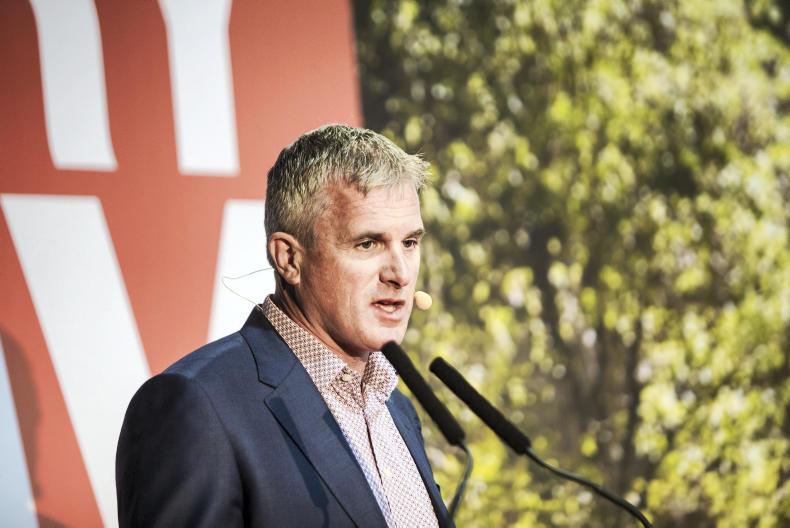Scale does not drive profit, John Penno, current Synlait director and co-founder, said at Dairy Day in Punchestown on Tuesday.
Over 25% of New Zealand’s dairy farmers are unprofitable despite the fact herd average size is now 400 cows, he said. Rising debt levels, increasing cost of production and lack of further expansion possibilities will limit any further growth in the New Zealand milk pool, according to Penno.
He reinforced the point by explaining that despite the New Zealand milk pool growing from 4bn to 21bn litres, 25% of dairy farmers were now unprofitable, and that 50% of farms had a debt to asset ratio of more than 60%.
First and foremost, we have to be able to cater for our suppliers. Nobody wants to turn away a milk supplier at the moment
International speakers from Germany, the Netherlands, South America, New Zealand and the UK explained challenges in each of their own countries for dairy and livestock farmers such as animal welfare, environmental challenges, and changing consumer trends at the Bord Bia-supported event.
Irish co-op chairs said farmers were up for change in whatever way was necessary. Carbery chair TJ Sullivan said efficiency on the farm rather than more cows is what will provide more milk to the Irish dairy pool. “First and foremost, we have to be able to cater for our suppliers. Nobody wants to turn away a milk supplier at the moment,” he said.
Investment
Pat Duffy, Aurivo chair, said that the co-op has invested in its Ballaghaderreen plant and “that gives cover to cope with the growth we have already seen and it does give us some headroom for growth in years to come”. Duffy explained that Aurivo has seen growth of 6.5% to 7% in 2019 supply, on the back of year-on-year growth of between 8% and 10%.”
Dairygold chair John O’Gorman was confident the co-op farmers would respond to change and if additional calf housing or changes to slurry or fertiliser use were required he felt they would deliver.






 This is a subscriber-only article
This is a subscriber-only article









SHARING OPTIONS: